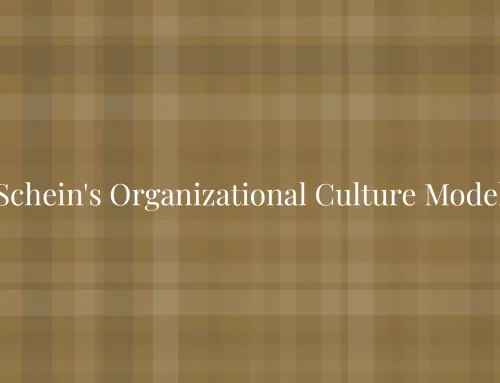The Single Instinct is a cognitive bias that leads us to try to explain complex phenomena with a single, simple explanation or story. This instinct is described in the book Factfulness by Hans Rosling, Ola Rosling, and Anna Rosling Rönnlund, and is one of several “instincts” that can lead us to misunderstand the world around us.
According to the book, the Single Instinct is often driven by the desire for a clear and straightforward explanation for complex issues. This can be particularly appealing in situations where we are faced with a large amount of information or complexity, such as in news stories about global events or in discussions of complex policy issues. In these situations, the Single Instinct can lead us to oversimplify or distort reality in order to fit it into a single, easy-to-understand narrative.
One example of the Single Instinct in action is the tendency to view developing countries as homogeneous, with a single set of problems and challenges. This oversimplification can lead us to overlook the significant differences that exist between countries, including differences in culture, geography, and economic development. By oversimplifying complex issues, we risk developing a skewed or inaccurate view of the world.
Another example of the Single Instinct is the tendency to attribute complex events or phenomena to a single cause or factor. For example, the book notes that many people tend to view poverty as solely the result of individual choices or personal failings, rather than a complex set of social, economic, and political factors. This oversimplification can lead to a lack of understanding of the root causes of poverty, and can hinder efforts to develop effective solutions.
The Single Instinct can also lead us to overlook the complexity and nuance of individual stories or experiences. For example, the book notes that many people tend to view refugees as a single, undifferentiated group, rather than a diverse set of individuals with unique experiences and backgrounds. By oversimplifying individual stories, we risk missing the complexity and nuance of human experiences, and may develop a skewed or inaccurate view of the world.
Tthe Single Instinct can be dangerous because it often oversimplifies and distorts reality, leading to misconceptions and misunderstandings. To overcome this instinct, the book emphasizes the importance of seeking out more nuanced and accurate explanations for the world around us. This can involve looking beyond simple narratives or explanations, seeking out diverse perspectives and experiences, and acknowledging the complexity and nuance of individual stories and experiences. By doing so, we can develop a more accurate and nuanced understanding of the world, and work towards more effective solutions to the challenges we face.
Example Of the Single Instinct
One detailed example of the Single Instinct can be seen in the way that people often talk about poverty. Many people tend to view poverty as solely the result of individual choices or personal failings, rather than a complex set of social, economic, and political factors. This oversimplification can lead to a lack of understanding of the root causes of poverty, and can hinder efforts to develop effective solutions.
For example, some people might argue that poverty is the result of a lack of work ethic or motivation among poor people. This narrative suggests that people who are poor are simply not working hard enough or making good choices, and that they could improve their situation if only they tried harder. This oversimplification ignores the many complex factors that can contribute to poverty, such as structural inequality, limited access to education and healthcare, and systemic discrimination.
Another example of the Single Instinct in action is the way that some people talk about immigration. Many people tend to view immigrants as a single, undifferentiated group, rather than a diverse set of individuals with unique experiences and backgrounds. This oversimplification can lead to a lack of understanding of the complex reasons why people might choose to migrate, and can lead to harmful stereotypes and misconceptions about immigrants. Some people might argue that immigrants are taking jobs away from native-born workers, or that they are a drain on social services. This narrative suggests that immigration is a simple problem with a simple solution, such as closing borders or restricting immigration. However, the reality is much more complex, with many economic, political, and social factors contributing to patterns of migration. By oversimplifying the issue of immigration, we risk developing a skewed or inaccurate view of the world, and may miss opportunities to develop more effective and humane policies.
Advantages
The Single Instinct, as described in the book Factfulness, refers to the human tendency to try to explain complex phenomena with a single, simple explanation or story. While this instinct can have disadvantages and lead to oversimplification and misunderstandings, it is not without its advantages.
One advantage of the Single Instinct is that it can help us make sense of complex information and events. When faced with a large amount of information or complexity, a simple and straightforward explanation can be easier to understand and remember. For example, when discussing global poverty, it can be helpful to have a single, overarching explanation that highlights the most significant factors contributing to poverty.
Another potential advantage of the Single Instinct is that it can help us identify patterns or trends in complex data. By looking for a single, simple explanation, we may be more likely to notice recurring patterns or trends in the data, which can be useful for identifying areas for further research or action.
Furthermore, the Single Instinct is that it can simplify decision-making. When faced with a complex set of options or choices, a simple and straightforward explanation can help us make decisions more efficiently. For example, if we are deciding between several policy options to address a particular issue, a single, clear explanation of the pros and cons of each option can help us make a more informed decision.
Additionally, the Single Instinct can help us communicate complex ideas to others in a more accessible and understandable way. By distilling complex information into a simple and straightforward explanation, we can help others understand important issues and engage in productive conversations about potential solutions.
Disadvantages
The Single Instinct, as described in Factfulness, has several disadvantages. One of the main drawbacks is that it can lead to oversimplification and distortion of complex issues, events, or phenomena. By seeking a single, simple explanation or story to explain complex issues, we risk overlooking important nuances and complexities that are essential to understanding the full picture. This can lead to misunderstandings, inaccurate conclusions, and ineffective solutions.
Another disadvantage of the Single Instinct is that it can lead to a lack of appreciation for diversity and individual experiences. By seeking to group individuals, communities, or countries under a single label or category, we risk overlooking the unique experiences and perspectives that make each individual or group distinct. This can perpetuate stereotypes and biases, and hinder efforts to develop inclusive and equitable solutions.
The Single Instinct can also contribute to a lack of critical thinking and analysis. By seeking simple and straightforward explanations for complex issues, we may fail to question assumptions or explore alternative perspectives. This can lead to a lack of innovation, creativity, and adaptability, and may hinder progress in addressing complex challenges.
Finally, the Single Instinct can be particularly dangerous in situations where the stakes are high, such as in decision-making related to public policy, healthcare, or international relations. By oversimplifying complex issues, we risk making decisions based on incomplete or inaccurate information, which can have serious consequences for individuals and communities.
Overcoming This Instinct
To overcome the Single Instinct, there are several strategies that can be employed:
- Seek out diverse perspectives: To avoid oversimplifying complex issues, it is important to seek out diverse perspectives and experiences. This can involve seeking out different sources of information, engaging with people from different backgrounds and cultures, and being open to different viewpoints and opinions
- Recognize complexity and nuance: It is important to recognize the complexity and nuance of individual stories and experiences. This can involve being aware of the many factors that contribute to complex issues, and acknowledging that there may be multiple factors or causes that contribute to a problem
- Look beyond simple explanations: To avoid oversimplifying complex issues, it is important to look beyond simple explanations or narratives. This can involve seeking out more detailed and nuanced explanations, and being willing to engage with complexity and uncertainty
- Be aware of biases: It is important to be aware of our own biases and assumptions, and to be willing to challenge them. This can involve being aware of our own perspectives and experiences, and being open to learning from others
- Educate ourselves: To overcome the Single Instinct, it is important to educate ourselves about the world around us. This can involve seeking out reliable sources of information, and being willing to learn about complex issues and topics
By employing these strategies, we can overcome the Single Instinct and develop a more accurate and nuanced understanding of the world around us. This can help us to develop more effective solutions to the challenges we face, and to work towards a better future for all.




